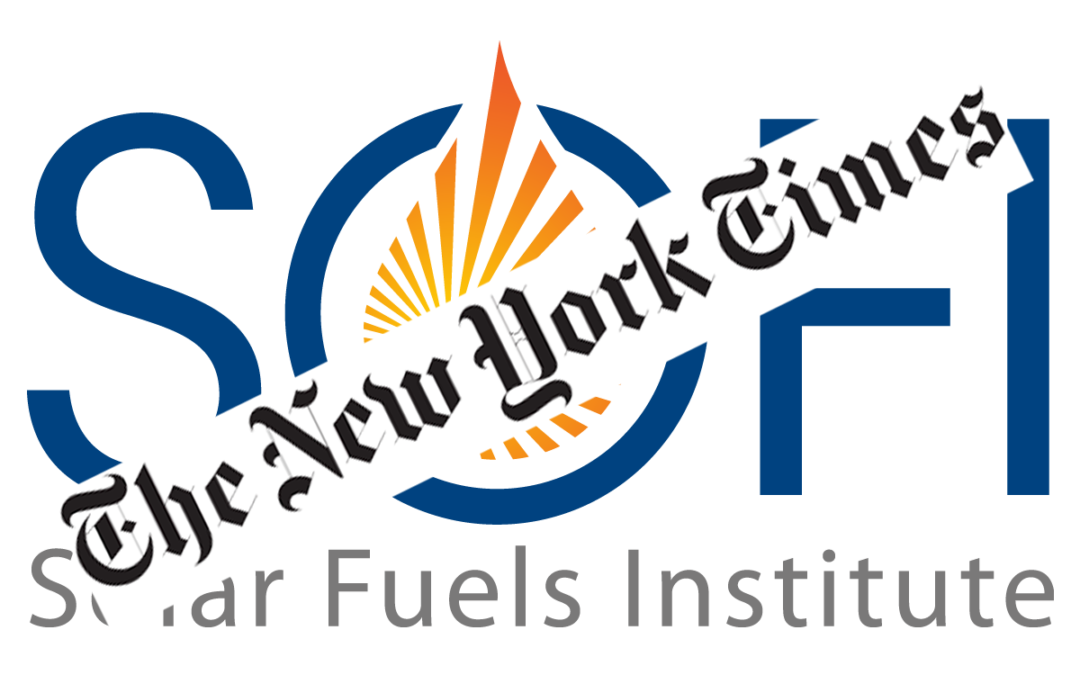Did you catch Dick Co’s quote in the recent New York Times piece “Researchers Aim to Put Carbon Dioxide Back to Work”?
“…how do we go from milligrams to megatons? How do we make a dent in our energy portfolio when people are working in test tubes today?”
At SOFI, we don’t just ask those questions, we are focused on answering them with several unique programs in our consortium.
The NYT piece proceeded to highlight great work coming out of JCAP, Opus 12, and the Blue Crude project between sunfire and Audi. While the former two are still in the R&D phase, sunfire has potential to commercialize a unit in the near future.
What couldn’t be done in the short article is to discuss what else is going on in SOFI to make a dent in our energy portfolio and move the field from test tubes to pilot plants. Within SOFI we are thrilled to be building tools and demonstration units that we know will help accelerate research in the entire field of solar fuels.
The first of these is the SOFI Knowledge Map. By providing a web-based platform to both access and input data and metrics from technical publications, researchers will be able to collectively create a modern database that goes beyond the current PDFs of scholarly papers. Using a solar fuels specific taxonomy, developed by our members, we have built an intuitive data entry portal to extract the essential facts and metrics from publications in the fields of catalysis, light management, and functioning devices. As a researcher working in a lab, you are able to search the database using various granular facets, helping you to find the relevant studies more quickly. As a solar fuels innovator, you can search with broader terms and find technology development opportunities more easily. Check out our Knowledge Map blog post!
The second of these is the SOFI Demonstration Project. We have a 4 phase plan in place to build this initial version on a demonstration scale to utilize solar power, water, and carbon dioxide to produce methanol. One attractive feature of the SOFI Demo Project is that the entire system is modular. This provides the opportunity to understand and overcome the challenges of building an integrated unit, as well as to partner with frontline researchers and engineers to incorporate new technologies as the field develops. SOFI’s goal is to seed many versions of the Demo Project, where we are able to move technologies from research labs to a demonstration scale testing module by proving the field with performance metrics and access to hands on time with an operating integrated system. We know the SOFI Demo Project can assist and accelerate laboratory research through collaboration and community development.
Collaboration is essential to moving the field of solar fuels toward market viability. Bringing together academic researchers from highly siloed fields with industrial partners and entrepreneurial backers will benefit all involved and further drive the field toward commercialization by looking at the problem from different angles and taking a leap of “why not”.

